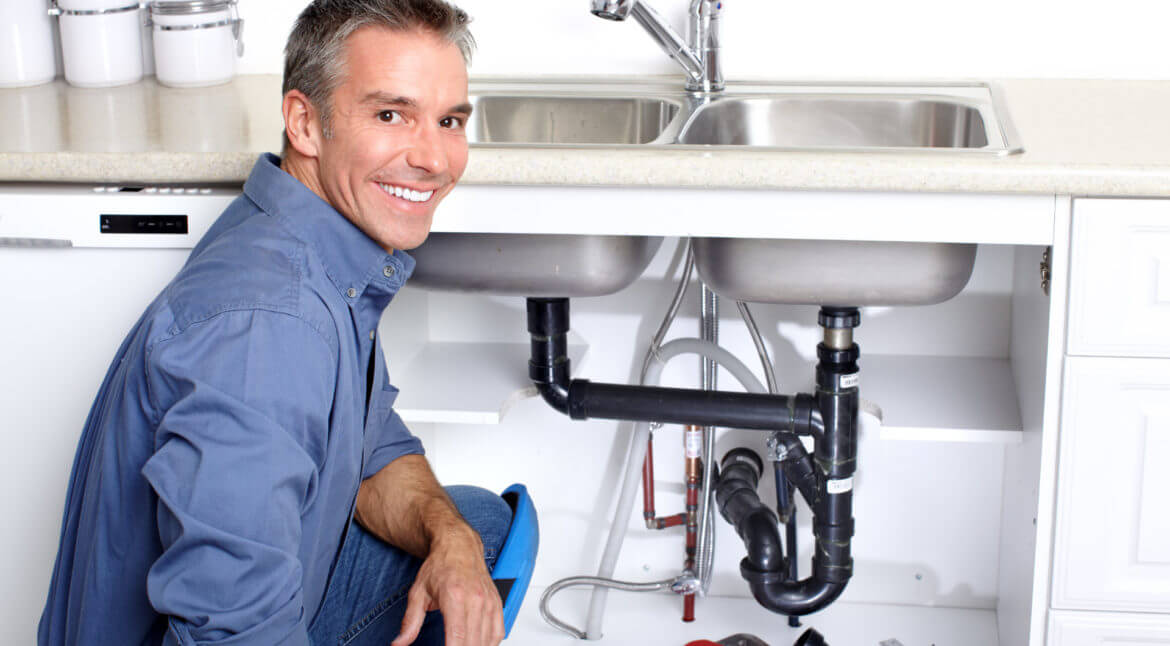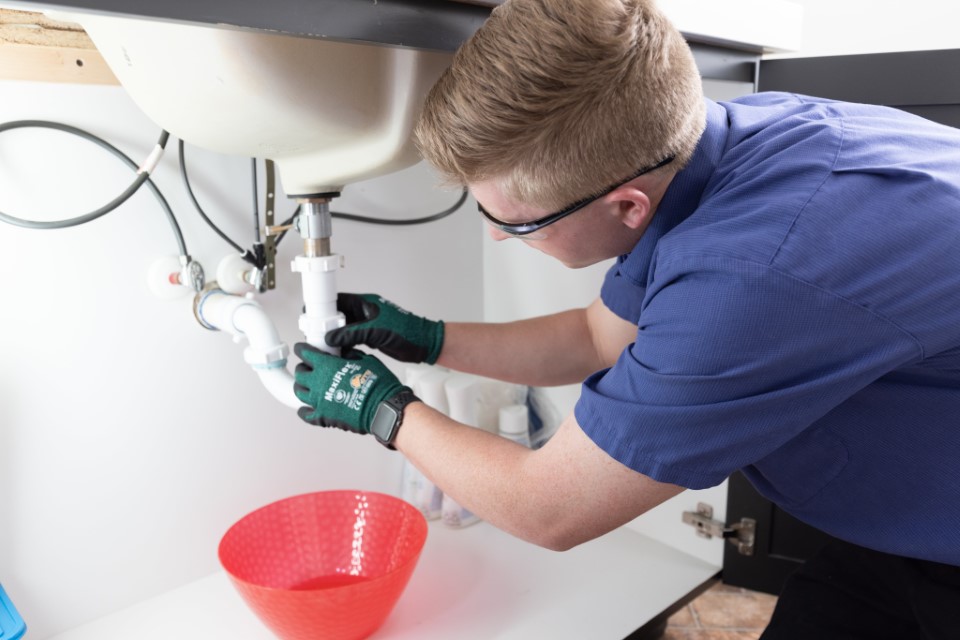Everyone seems to have his or her own thoughts in relation to Plumbing Emergencies: Tips on What To Do Before.

Pipes emergencies can strike at any time, causing anxiety and prospective damage to your home. Whether it's a ruptured pipeline, a clogged drain, or a leaky faucet, knowing exactly how to handle the scenario till a specialist plumber arrives can save you from additional problems. This post supplies crucial emergency situation pipes tips to help you reduce damage and regain control during a plumbing crisis.
Turn Off the Water
The first step in any kind of pipes emergency situation is to shut off the supply of water. For localized problems, such as a dripping tap or toilet, turn off the valve near the fixture. When it comes to a significant leakage or ruptured pipeline, locate your home's main water shut-off valve and turn it off right away. Understanding the place of these shutoffs ahead of time can conserve beneficial time throughout an emergency situation.
Address Tiny Leakages with Short-lived Fixes
Small leaks can promptly come to be considerable problems if left unchecked. Use these short-lived solutions up until expert help arrives:
While these fixes aren't irreversible, they can assist reduce water loss and damages.
Unclog Drains Pipes Safely
A clogged drainpipe can be a discouraging and messy problem. Here's just how to tackle it:
If these techniques do not work, prevent using extreme force, as it might get worse the clog.
Take Care Of Overflowing Toilets
An overflowing toilet can trigger instant turmoil. Here's what you must do:
Shut down Your Water Heater
In specific emergencies, such as a burst pipeline, it's important to shut off your hot water heater. This protects against overheating or damage to the device when water quits flowing. Shut off the power supply to the water heater (electrical or gas) and let it cool off to stay clear of prospective threats.
Temporarily Quit a Ruptured Pipe
A burst pipe can bring about significant water damages in minutes. To alleviate the issue:
Call a professional plumbing professional instantly to resolve the problem completely.
Deal With Frozen Piping Thoroughly
In cooler environments, frozen pipelines are a typical emergency. If you believe a frozen pipe:
Prevent More Damages
Taking quick activity to lessen damage can conserve you money and time in the future. Right here's how:
. Have an Emergency Pipes Set
Prepare a fundamental plumbing emergency situation set to handle small problems efficiently. Your kit must include:
Having these tools on hand can make a substantial difference in your capacity to handle emergencies.
Know When to Call a Specialist.
While quick fixes can assist momentarily, specific plumbing concerns require prompt expert focus. Call a plumbing technician if:.
Promptly calling an expert makes certain the problem is dealt with properly and avoids additional complications.
Verdict.
Plumbing emergency situations can be overwhelming, yet with the ideal knowledge and devices, you can manage the scenario efficiently till help gets here. By turning off the supply of water, resolving small leaks, and making use of momentary solutions, you can minimize damage and maintain your home safe. Remember, these suggestions are momentary remedies; always seek advice from an accredited plumbing professional to handle the source of the issue. Prep work and fast thinking are your finest allies in any kind of plumbing emergency situation.
8 Helpful Tips for Managing Plumbing Emergencies at Home
If your plumbing system hasn’t failed once, wait for it because almost everyone has a story to tell. Sometimes, it could be simple emergencies such as a leaking pipe, a blocked cistern, or even a big burst pipe. In situations like this, you need to have some handy tips to save you some money and from possible damages.
Take care of minor issues early.
Sometimes, you could have avoided an emergency by taking proactive measures while it was still early. Some major plumbing emergencies can be a result of an ignored minor issue. We recommend that you have items like plumbing tapes and other related items. A plumbing tape can allow you to manage minor leaks before the plumber arrives.
Cut off the water supply.
This tip is essential in almost any type of leakage problem. For problems like minor leakages in the toilet or kitchen, turn off the supply that takes water to the affected pipes. If the leakage is a major pipe, you must shut off the supply valve to the entire building. This will help you avoid flooding your home and neighbors if you share a flat.
Know your plumbing system
Folks typically move into a new apartment without understanding the water supply around the building. This can prove disastrous if a water emergency arises and the plumber is far away. The previous tip will prove useless if you don’t practice this one. More importantly, know where your water shut-off valve is located – you’ll need that knowledge to prevent potential home floods.
Have some common handy tools
There are lots of plumbing emergencies that you can handle without hiring a plumber. That’s why you must keep some tools available always. Some tools that you can use to fix simple plumbing emergencies easily include plumbing tapes, screwdrivers, thread seal tapes, plungers, pliers, tape measures, and rubber gloves.
Insulate your pipes from cold
You’ll save yourself from many plumbing expenses if you protect your water pipes from the cold. This is because of the harmful effects that cold weather can have on your pipes. During winter, your pipes can burst from being overly expected to freezing temperatures. So, make sure insulators are there to keep the pipes working correctly.
Avoid practices that will clog your toilet.
Many people indulge in practices that can damage the plumbing system of the entire building. One of these is when they use their toilet to dispose-off garbage. They flush all kinds of things, such as paper towels, bandages, hairs, female sanitary products, etc., down the toilet. This will block your toilet in the long run, incurring unnecessary expenditures. Dump such waste in the trash instead.
Check your dials regularly.
Sometimes, there could be leakages in your home without noticing them in time. So, constantly monitor your water meter dial. If the dial is reading when there is nobody using water, this is an indicator that there is leaking. Check for leaks immediately. Call a plumber as soon as possible if you can’t find any.
https://www.constructionplacements.com/8-helpful-tips-for-managing-plumbing-emergencies-at-home/

Do you really like more info about Expert Tips for Emergency Plumbing Repairs? Place feedback down the page. We would be pleased to find out your feelings about this write up. We hope that you come back again in the near future. Sharing is nice. Helping people is fun. We enjoy reading our article about Expert Tips for Managing a Plumbing Emergency Until Help Arrives.
Website